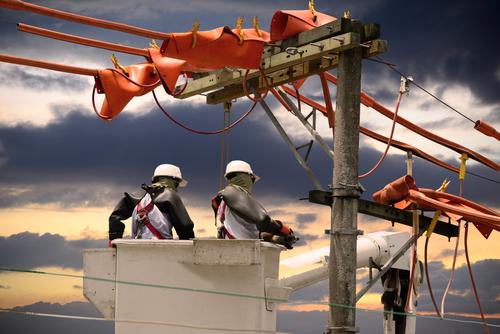On June 15th of this year, Byron Shire launched their “Virtual Net Metering” trial program. The coastal council now the first local government in Australia to road test the system and explore the benefits and drawbacks of this type of electricity metering.
Experts in the field noting that this new program could significantly change the production of electricity in this country as well as impacting the role that utilities play in the distribution of energy.
Virtual net metering rolls out across Byron shire
Virtual net metering is also known as peer-to-peer trading. Simply put, this type of arrangement enables the excess production of energy generated by the solar panels of one structure to be credited against the energy usage of another structure.
In the case of Byron Shire, it is proposed that a sizeable rooftop solar system be installed on top of the local sporting centre. This structure providing a large roof area with a relatively minor consumption of electricity.
Thus, the excess energy generateed can be credited to the nearby sewage plant. This plant has very little roof space for a solar panel array, but has heavy demands for electricity.
The present regulations require that any excess solar output from an array installed in the sporting centre has to be sold back to the grid. In return, the centre will be paid only a paltry amount of 6 cents per kilowatt hour.
Current regulations see all excess solar energy sold back to the grid
However, it is still unclear if the payment will be done by the grid, since payment is actually just on a voluntary basis.
It could also happen that the excess output might be sold back by the retailer to the sewage plant at the standard commercial rates. Usually, this is more than 5 times the purchase amount.
This is the reason why virtual net metering is being pushed by many utility operators. It is a means by which network operators can delay the predicted collapse of their energy monopoly. Instead, the virtual net metering scheme is predicted to move consumers away from the idea of using battery storage to save the excess energy they produce.
The virtual net metering program will also discourage consumers from going off-grid. With this peer-to-peer strategy, network operators are able to maintain their poles and wires because they will still have functional roles.
New program predicted to discourage consumers from going off-grid
Simon Richardson, the Mayor of Byron Bay says the shire offered exactly that kind of proposal to the local network operator Essential Energy.
“We wrote a letter to Essential Energy, and we said the way we see it you have a death spiral on your economic model, you are increasingly expensive and as solar and battery storage costs come down more and more people might leave the grid,” said Richardson in a solar energy forum last March.
“What we want to do is use the poles and wires, so you can keep the customers, although you are going to have to charge them far less,” he explained. “They actually wrote back and agreed with economic business model, and invited us to come down to Sydney and talk,” he added.
These strategies were proposed by people such as Geoff Bragg of the Solar Energy Industry Association. Bragg also noted that there were some businesses last year which chose to switch off their solar arrays rather than sell to energy companies for nothing.



